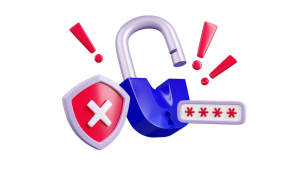Avoid Facebook Jail — it’s the one phrase every Facebook advertiser hopes never to hear. While it’s not an official term, it describes a very real scenario—when your ad account gets restricted, disabled, or banned altogether.
For marketers, this can mean lost revenue, wasted time, and serious disruption. But here’s the good news: Facebook Jail is avoidable if you understand how the system works and take the right precautions.
Let’s break down how to keep your account safe and your campaigns live.
 What Does “Facebook Jail” Really Mean?
What Does “Facebook Jail” Really Mean?
Facebook Jail refers to enforcement actions taken by Meta against advertisers or business accounts. These can include:
-
Temporary restrictions on ad accounts or Business Manager access
-
Disapproved or removed ads
-
Reduced delivery or reach across campaigns
-
Full ad account or page bans
These actions are usually triggered by policy violations, unusual activity, or poor user experience metrics—and in many cases, they’re automated.
Why Facebook Jail Happens
Meta uses a combination of automated systems and manual reviews to monitor advertisers. The system isn’t perfect, but most restrictions stem from a few common issues.
1. Violating Ad Policies
Ads that break Meta’s rules—whether clearly or subtly—can lead to quick penalties. This includes:
-
Exaggerated claims or promises
-
Mentioning personal attributes (like age or medical conditions)
-
Promoting restricted products like supplements, crypto, or adult content
2. Negative Feedback from Users
If users consistently report or hide your ads, the algorithm takes it as a sign that your content is misleading or low quality. Even if your targeting is solid, poor engagement can hurt your standing.
3. Suspicious Account Activity
Facebook monitors behaviors like logging in from different countries, switching payment methods frequently, or scaling spend too quickly. These can trigger red flags, even if your ads are compliant.
4. Poor Landing Page Experience
If your ad leads to a slow, misleading, or confusing landing page, it can be flagged. The content after the click matters just as much as the ad itself.
 How to Avoid Facebook Jail
How to Avoid Facebook Jail
Staying out of Facebook Jail isn’t about being overly cautious—it’s about building trust with Meta over time. Here’s how you can do that effectively:
Understand and Follow Ad Policies
Meta updates its policies regularly, especially in areas like health, finance, and personal development. Make sure your team is always working with the latest rules.
Avoid language that sounds like a guarantee or makes exaggerated claims. Phrases like “Get rich fast” or “Lose weight overnight” are high risk.
Warm Up New Accounts Properly
Brand-new ad accounts should start slowly. Instead of launching conversion-focused campaigns right away, begin with engagement or traffic objectives. This signals to Meta that you’re a legitimate advertiser.
Use Stable, Verified Payment Methods
Stick with consistent billing information. Prepaid cards, frequent changes, or payments from high-risk countries can make your account look suspicious.
Avoid Clickbait or Sensational Copy
Even if your ad is technically allowed, content that misleads or frustrates users will eventually lead to negative feedback. Be clear, honest, and helpful in your messaging.
Secure Your Business Manager
Turn on two-factor authentication for everyone who has access. Limit roles to only the people who need them, and avoid logging in from multiple locations or using unauthorized browser extensions.
Monitor Ad Performance Closely
If you see ad rejections, drops in reach, or high negative feedback, take them seriously. Use this data to adjust your approach before restrictions appear.
 What to Do If You’re Already in Facebook Jail
What to Do If You’re Already in Facebook Jail
Sometimes, even careful advertisers run into trouble. If you’ve already been restricted, act fast:
-
Go to the Account Quality section in Business Manager
-
Review the flagged issues or violations
-
Submit an appeal with clear, professional language
-
Remove or revise any content that could be problematic
-
Double-check access permissions, payment methods, and assets for compliance
Not all penalties are permanent, but ignoring them can make recovery harder.
Final Thoughts: Stay Ahead of the System
To avoid Facebook Jail, you need to be proactive—not just compliant. Meta’s review systems look at patterns, behavior, and trustworthiness over time. Build a track record of clean ads, stable activity, and great user experiences, and you’ll be in a strong position to scale without risk.
It’s not about playing it safe—it’s about playing smart.



